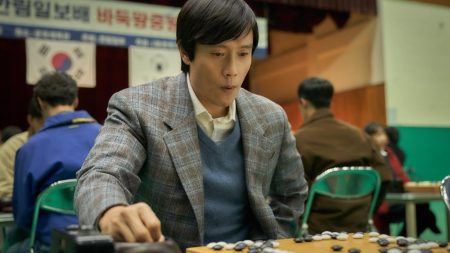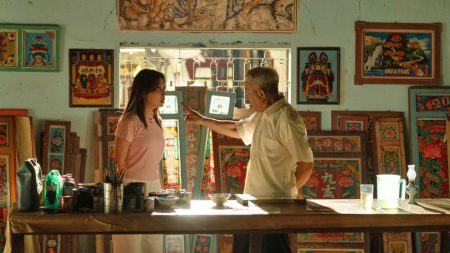M23 Rebels Abduct 130 Patients from Hospitals in Eastern Congo
In a disturbing turn of events, Rwanda-backed M23 rebels abducted at least 130 sick and wounded men from two hospitals in Goma, a strategic city in eastern Democratic Republic of Congo (DRC). The United Nations Human Rights Office confirmed the incident, which took place on February 28. M23 fighters raided the CBCA Ndosho Hospital and Heal Africa Hospital, seizing 116 patients from the former and 15 from the latter. The rebels allegedly targeted individuals they suspected of being Congolese army soldiers or members of the pro-government Wazalendo militia.
Ravina Shamdasani, a spokesperson for the U.N. Human Rights Office, described the situation as “deeply distressing,” emphasizing that the rebels have been snatching patients from hospital beds in coordinated raids. The victims are now being held in undisclosed locations, cut off from communication with the outside world. Shamdasani called for their immediate release, highlighting the grave violation of human rights and international law.
M23 Rebels’ Advance and the Escalating Conflict in Eastern Congo
The M23 rebels have made significant gains in eastern Congo since the beginning of the year, seizing key cities and displacing thousands of civilians. Their lightning-fast three-week offensive saw them capture Goma, the largest city in the region, and Bukavu, the second-largest city. The conflict has already claimed the lives of approximately 3,000 people, marking the most severe escalation of violence in over a decade.
The region, rich in gold and coltan—a mineral essential for producing capacitors used in consumer electronics—is a hotspot for both economic and geopolitical interests. The M23 rebels, supported by an estimated 4,000 troops from neighboring Rwanda, according to U.N. experts, have vowed to push further into Congo, even threatening to reach the capital, Kinshasa, over 1,000 miles away.
Rwanda’s Role and Claims of Protecting Tutsis
Rwanda has been accused of backing the M23 rebels, though the government has consistently denied direct involvement. Rwanda has instead accused Congo of recruiting ethnic Hutu fighters linked to the 1994 genocide of Tutsis and moderate Hutus in Rwanda. The M23 group, originally formed in 2012, claims to fight for the protection of Tutsis and Congolese of Rwandan origin, asserting that they face discrimination in Congo.
However, analysts and experts have dismissed these claims as pretexts for Rwanda’s involvement in the conflict. They argue that Rwanda’s interest in eastern Congo is more about expanding its political and economic influence in the resource-rich region. The M23’s stated goal of transforming Congo from a “failed state” to a modern one is seen as a thinly veiled justification for its military campaign.
Civilians Bear the Brunt of the Conflict
The abduction of hospital patients is just one example of the dire humanitarian situation in eastern Congo. Hundreds of thousands of civilians have been displaced, with many forced to flee their homes amid the advancing rebel forces. The takeover of Goma and Bukavu has disrupted essential services, including healthcare, leaving vulnerable populations at greater risk.
Civilians in the region have faced immense suffering, with reports of mass killings, rapes, and forced conscription of young men into the rebel army. The U.N. has repeatedly called for an immediate cessation of hostilities and for the M23 rebels to withdraw from occupied territories. Meanwhile, international aid organizations are struggling to reach affected populations due to the ongoing violence and instability.
A Region Plagued by Instability and Resource Exploitation
The conflict in eastern Congo is not new, but the recent escalation has brought the region to the brink of chaos. Since the 1990s, the area has been haunted by ethnic tensions, resource exploitation, and competition among regional powers. The abundance of gold, coltan, and other minerals has made it a battleground for armed groups, foreign governments, and multinational corporations.
The involvement of neighboring countries, particularly Rwanda, has further complicated the conflict. Rwanda’s support for the M23 rebels has strained its relationship with Congo and drawn criticism from the international community. At the same time, Congo has accused Rwanda of using the M23 as a proxy force to exert control over the region’s resources.
The Uncertain Path to Peace
The abduction of hospital patients in Goma serves as a stark reminder of the human cost of the conflict in eastern Congo. Civilians, including the sick and wounded, are bearing the brunt of the violence, with little hope for immediate relief. The international community continues to call for dialogue and a peaceful resolution, but the complex web of interests and alliances makes a swift end to the conflict unlikely.
For now, the people of eastern Congo remain trapped in a cycle of violence, displacement, and despair, as armed groups, foreign powers, and economic interests vie for control. The abduction of patients from hospitals is not just a violation of human rights—it is a grim illustration of how far the conflict has eroded basic humanity and respect for life. Until meaningful action is taken to address the root causes of the conflict, the people of eastern Congo will continue to suffer at the hands of those who claim to fight for their protection.









